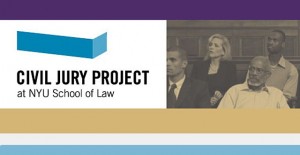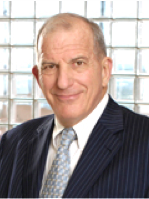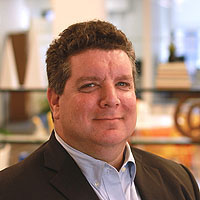Source of article DOAR Litigation Consulting.


Stephen Susman
In a series of articles on Law 360, Steve Susman, Richard Lorren Jolly and DOAR Jury Consultant Roy Futterman provide the Civil Jury Project’s proposed innovations for improved jury trials:
This is the sixth in a series of articles on the Civil Jury Project’s proposed innovations that can resuscitate the American jury trial. Each week we offer a summary of a different innovation, the legal support for its use, and empirical studies on its popularity. Each innovation has been proposed by academics and practitioners, implemented by state and federal judges, and is not prohibited in most jurisdictions. Most importantly, each innovation addresses the main criticisms leveled at juries — that they are too long, too expensive, too unpredictable — and is designed to make trial by civil jury a more desirable form of dispute resolution.
Innovation Six: Opening Statements Before Voir Dire

Richard Lorren Jolly
This week we continue our focus on achieving better civil jury trials through reforming the voir dire process. This week’s idea is remarkably simple: Allow counsel to provide complete opening statements to the entire venire before voir dire begins instead of after the jury is impaneled. Allowing attorneys to give their opening statements before rather than after voir dire carries benefits and only minor theoretical detriments.
The chief benefit is that early opening statements create a more substantive and comprehensive voir dire. In courts that leave voir dire entirely up to the judge, or limit the lawyers’ questions, openings allow potential jurors to be questioned on their reactions and biases related to key case issues. This is important because it helps potential jurors understand the relevance of specific lines of questioning. If potential jurors understand what the attorneys are driving at, they are more capable of searching their individual experiences and biases to provide better, more complete answers. Counsel for both sides can then more cogently exercise peremptory and for-cause challenges, thus resulting in a more satisfactory decision-making body.

Roy Futterman, Ph.D.
Another advantage of this practice — although more for the judicial system generally than directly for the parties — is that it increases the satisfaction of those persons who are called but not selected to serve. Overwhelming evidence shows that jury service is beloved by those who actually serve to verdict, but hated by those who report to the courthouse, sit around all day, and are sent home. The latter group understandably views jury service as a complete waste of time. By allowing everyone to hear openings, all jurors get a taste of what is at stake in the case and will hopefully walk away more appreciative of our judicial system.
Many states already have laws that provide for mini-openings before voir dire, which obviously serve a similar function to our proposal. And according to a national survey administered by the Civil Jury Project and the American Society of Trial Consultants, 66.5 percent of attorneys with experience of mini-openings recommended them, while just 12.6 percent did not. The problem with mini-openings, however, is that they elongate the proceedings by requiring attorneys to repeat the opening after jury selection. There is no reason for this repetition. Indeed, we are unaware of any rules, state or federal, that prohibit judges from requiring, or attorneys from consenting to, the delivery of full openings before jury selection. In fact, Judge Thomas Marten of the U.S. District Court of Kansas developed the practice over 20 years ago and still uses it today. You can read his considered perspective on the benefits here.
Objections to Early Openings
Some courts and attorneys are adamantly against this innovation. And some states, like Oklahoma, even have laws providing that “Counsel shall scrupulously guard against injecting any argument in their voir dire examination.” The fear is that opening statements before voir dire pre-dispose the jury to reach conclusions inappropriately early, and that they encourage biased jurors to self-select into the trial. Based on our decades of experience with voir dire, however, we are underwhelmed with these objections.
First, the idea is just to have jurors hear an opening earlier in the day or at most a few days earlier than they would have otherwise heard it. A person who would make a firm verdict decision based solely on an opening statement is exactly the person who should be questioned and exposed in voir dire rather than later.
Second, as to the argument that jurors would self-select onto a jury, we would argue that the legendary (and usually mythical) stealth juror only applies to high-profile and/or celebrity cases, and should also be exactly the person who should be exposed and questioned in voir dire.
We instead raise the more realistic concern that, rather than fear jurors self-selecting onto juries, early opening statements would instead aid potential jurors in self-selecting themselves off of juries. Anyone who would like to get off jury duty would have more specific information from an opening statement with which to claim bias. That said, as any tear-stained jury consultant can tell you, those same people would be the ones good at getting out of jury duty anyway through cleverness and persistence.
As long as we are upending the sacred structure of civil trials, why stop there? Next week, we will present another innovation to make trial by civil jury better: Allowing counsel to make interim arguments throughout the trial.
Stephen D. Susman is a founder of Susman Godfrey LLP and the executive director for The Civil Jury Project at NYU School of Law.
Richard Loren Jolly is an attorney and research fellow at the Civil Jury Project.
Roy Futterman, Ph.D. is an adviser to the Civil Jury Project. He is a jury consultant, clinical psychologist and director at DOAR, Inc., as well as a columnist for Law360.
The post Innovating For Wise Juries: Openings Before Voir Dire appeared first on DOAR.
